On the occasion of the 80th anniversary of its founding (September 15, 1945 - September 15, 2025), Vietnam News Agency (VNA) was honored to receive the Ho Chi Minh Medal.
This is a noble award, demonstrating the recognition of the Party and State, proving the unceasing dedication of the agency that was awarded the title of Hero three times in the struggle for national liberation and unification; at the same time, it is also an honor and pride of VNA - the unit named by Uncle Ho and always given special attention.
Engrave Uncle Ho's advice
President Ho Chi Minh was the founder of VNA, originally called Vietnam News Agency (VNTTX). From its very first days, VNA has always received special attention from Uncle Ho, from his instructions and valuable experience in journalism to the news reports he directly edited.
Over the past 80 years, Uncle Ho's affection and care for VNA has always been an honor, pride and motivation for generations of VNA journalists to constantly contribute, build and develop the agency to become stronger and stronger, worthy of being the official mouthpiece of the Party and State, a reliable national information center, and a prestigious news agency in the region and the world .
On March 4, 1952, at the headquarters of VNA in Trung Long village, Tan Trao commune, Son Duong district, Tuyen Quang province (now Tan Trao commune, Tuyen Quang province), VNA staff and reporters were honored to welcome Uncle Ho to visit.
In particular, in the early summer of 1954, when receiving news about the Dien Bien Phu Campaign, Uncle Ho sent a message through liaison comrade Nguyen Tien Luc: "The faster the news, the sooner the resistance will win."
Uncle Ho's advice to the liaison officer that year became a valuable lesson, deeply remembered by generations of cadres, reporters and editors of VNTTX - now VNA, and was the red thread that led the national news agency to excellently complete all assigned political tasks.
On the morning of the first day of the Lunar New Year 1955 - Liberation Day, VNA was honored to receive a phone call from Uncle Ho wishing him a Happy New Year. Uncle Ho wished the staff of VNA: "New Year, new efforts, new successes" and "Broadcast news quickly, promptly, with good news, a lot of news and ensure the truth."
Currently, at the VNA Relic located at Khau Linh Hill, Hoang Lau Village, Tan Trao Commune, Tuyen Quang - one of 18 relics belonging to the Tan Trao Historical Relic Site, where President Ho Chi Minh and the Central agencies lived and worked during the pre-uprising period and the resistance war against the French, there is a stele engraved with Uncle Ho's advice: "The faster the news, the faster the resistance will be victorious!".
Uncle Ho's care and New Year's greetings are also instructions on duties for VNTTX.
President Ho Chi Minh attached great importance to VNA's news bulletins because, according to him, this was a very important source of information with a variety of rich, timely and accurate news and articles.
The press was an extremely important information channel for President Ho Chi Minh, in which he always had special affection and attention for Vietnam News Agency (now Vietnam News Agency). Despite being busy with a thousand and one things, every day, he still took time to listen to the radio and read VNTTX news. He personally edited each sentence and word, approved news articles, and gave professional advice to VNTTX reporters many times. In the photo: Uncle Ho's handwriting editing VNTTX news. (Photo: VNA)
Uncle Ho read VNA news every day, hardly missing any important news; when he saw any good news or any individual with many achievements, he used a red pen to comment in the margins and asked for verification to reward them.
He paid special attention to international news related to Vietnam and war news in the South. He marked important news and articles, especially reference documents, to read later in the evening.
Sometimes, when Uncle Ho was away on business or based on his health condition, the Office of the President would regularly send important news to him.
When he did not have time to read the newspaper, he would ask his office colleagues: "Is there anything special about VNA news?", "Does VNA not have any news?". For almost all prominent domestic and international events, Uncle Ho waited for VNA news and in many cases, he only gave his opinion after fully consulting the news provided by VNA.
Currently, the VNA's Traditional Room still preserves many manuscripts of news reports with editorial handwriting by the outstanding journalist Ho Chi Minh.
The handwritings Uncle Ho left on VNA news bulletins are profound professional lessons for news agency journalists in particular and the team of Vietnamese revolutionary journalists in general on how to write and edit in a concise, easy-to-understand, close-to-the-point yet profound way, imbued with humanity.
Ms. Vu Thu Hang, an official of the Presidential Palace Relic Site, shared: President Ho Chi Minh highly appreciated the role of press agencies, including VNA.
He personally approved many news and articles of VNA, and gave advice to reporters and photographers about their jobs. He read news about good people and good deeds of VNA every day and awarded badges to some individuals who were praised in the news. He read and regularly commented on VNA news, both popular and reference news, pointing out shortcomings to VNA, including inaccurate translations and transcriptions.
On the desk in the house where he met with the Politburo, and also where he was treated and passed away, there is still a stack of news bulletins he had read. These are 7 volumes of news bulletins published by VNA from August 18-24, 1969.
During his final days, Uncle Ho still regularly followed the news and often commented on the news and articles he heard. During this time, due to his health getting worse, he could no longer read the news himself and did not leave any handwriting on these news bulletins.
The handwritings left behind were by the comrades who served, noting issues that Uncle Ho needed to review or for him to collect documents and present to the Politburo for discussion. Only after August 24, 1969, did the comrades who served stop reading newspapers to Uncle Ho.
Meet information task requirements in each stage
Uncle Ho's teaching during the resistance period "The faster the news, the faster the resistance" has gone beyond the usual current affairs meaning, becoming the orientation and compass for the entire process of activities of VNA journalists who always strive, overcome all difficulties, sacrifice blood and bones to transmit the fastest, continuous, timely, accurate, and oriented information flow, expressing the Party's viewpoints, the Government's policies and the people's aspirations, to the press system and the public at home and abroad.
During the two resistance wars against French colonialism and American imperialism, VNA made efforts to both fight and build, develop, and fulfill its role as a key information agency, a vanguard on the ideological and cultural front.
VNA overcame countless difficulties and hardships by moving locations 21 times to avoid enemy search and detection, breaking through enemy sieges to attack the base dozens of times, fighting to preserve forces, moving machinery and equipment, and ensuring information to serve the Party and Uncle Ho.
Many comrades sacrificed heroically, including comrade Tran Kim Xuyen, Deputy Director of the Information Department, the first person in charge and also the first journalist of VNA to sacrifice (in 1947).
VNA reporters were present from the very first days of the Southern resistance war, following the army to the South, present at the Viet Bac, Border, Route 18, Hoa Binh, Tay Bac, Ha Nam Ninh, Binh Tri Thien campaigns, the battlefields of Laos and Cambodia; present at the Geneva Conference, the Trung Da Conference and the three-party joint military delegation to provide timely information...
Also during the years of resistance against France, VNA had a representative office in Bangkok (Thailand), then in Yangon (Myanmar), publishing the Tin Tuc newspaper to serve our overseas Vietnamese and conduct foreign propaganda in those countries, and at the same time, through here, sending news in French and English to Paris (France) and other countries.
VNA is one of the first press agencies assigned to prepare for the building of a VNA force in the South.
On October 12, 1960, exactly on the day the Central Party Secretariat issued Directive No. 02 on strengthening the work of VNA in the new situation, in a forest in the middle of the Duong Minh Chau war zone, a number of VNA cadres who remained in enemy territory and returned from Cambodia were assigned the task of establishing a revolutionary news agency in the South.
The first news bulletin of the Liberation News Agency (TTXGP) was broadcast under the name GPX (Liberation of the Commune), and the foreign news agency was LPA, marking the birth of the news agency of the National Liberation Front of South Vietnam.
GPX and LPA news bulletins, via VNTTX, are broadcast nationwide and abroad.
During the years of resistance against the US, VNA in the North provided support to the Southern battlefield with more than 450 key cadres, reporters, editors, and technical staff, not to mention hundreds of cadres, reporters, editors, and technical staff from the North following the advance, participating in campaigns across the battlefields of the South, Laos, and Cambodia.
Reporters and staff of VNA are always present in key areas and the hottest fronts to denounce the enemy's crimes, to praise the determination to fight and win of the army and people of the North; to report hourly and daily, continuously on the developments of the battlefield situation in the South, the US plot to escalate attacks on the North, to expand the war to the three Indochinese countries...
These reports of VNA were highly appreciated; therefore, the Politburo and the Central Party Secretariat at that time commented, "VNA's news source is the Party's strategic news source."
During the historic Ho Chi Minh campaign, VNA reporters closely followed each advance, were present in the five army wings that entered to liberate Saigon, and were present in all localities during the rapid attack and uprising.
On April 30, 1975, together with the liberation army, reporters and technical staff of VNA were present in the first hours of the day of total victory, witnessing the surrender of the Duong Van Minh cabinet at the Independence Palace, recording news, articles and photos and sending them to Hanoi to promptly announce the end of the Saigon regime. VNA reporters, together with heroic Navy soldiers, marched out to liberate the Truong Sa, Con Dao, Phu Quoc, Tho Chu archipelagos... sacred territories of the Fatherland.
During the wars of national liberation, defense of the Fatherland, and reunification, VNA had nearly 260 reporters, editors, and technical staff who heroically sacrificed their lives on battlefields from Viet Bac to Ca Mau and on international missions, accounting for more than 25% of VNA staff during the war. That was the great sacrifice of VNA for the nation's revolutionary cause.
The country was unified, implementing the Directive of the Secretariat and the Decision of the National Assembly Standing Committee, in 1976, VNA and GVN merged and changed their name to VNA.
With the role of "news and photo bank" of the press system, VNA has quickly innovated to meet the requirements of information tasks in the new situation.
Efforts to build a strong national news agency
The faster the news, the faster the victory - Uncle Ho's teachings are not only a guideline for action during the resistance war, but also have lasting value to this day, when VNA in particular and press agencies in general are facing a "war without gunfire" on the ideological, cultural and information fronts.
Over 80 years of formation and development, from the resistance wars against France and the US to the period of renovation, international integration and the fourth industrial revolution, VNA has always been a pioneer on the information front, promptly reflecting current events at home and abroad, providing official, honest and objective sources of news to serve the leadership of the Party, the management of the State, as well as the information needs of the public.
The VNA's exhibition area introduces the 80-year journey of the national news agency's establishment, construction, development and companionship with the country, with the message "Official news source - Main news stream". (Photo: Pham Kien/VNA)
Faced with new requirements, VNA focuses on performing well its functions and tasks as a national news agency, publishing and broadcasting information and official documents of the Party and State; collecting and providing information to serve the leadership requirements of the Party and management of the State; and being an official and reliable source of information serving mass media agencies and the general public.
VNA focuses on disseminating the Party and State's guidelines and policies to the people quickly, promptly, and accurately, helping people understand clearly, agree, trust, and respond to implementation.
VNA's information also helps leaders at all levels grasp the situation and have a basis for making timely and correct decisions. In many situations, fast, accurate and precise information also actively supports natural disaster prevention, media crisis handling, and firmly protects the Party's ideological foundation against sabotage and distortion by hostile forces.
Implementing the orientation in Resolution 01-NQ/DU of the Party Committee of VNA, term XXVI, building VNA into a key national multimedia agency, affirming and enhancing the role and position of VNA in the Vietnamese revolutionary press system in the new period, the VNA leadership has made many innovations and creativity in its direction and operation, creating clear changes in the implementation of assigned political tasks.
Key information routes are systematically organized, creating a combined strength and improving propaganda effectiveness. VNA promotes digital transformation in the information production process; launches many multimedia information products; widely disseminates official information on media platforms, promotes information to protect the Party's ideological foundation through various forms, continues to affirm its position as a trusted strategic information agency of the Party, State and people, maintains and promotes the key role of VNA in the national media system.
With 5 news editorial boards, 2 source information centers, a system of 63 domestic and 30 overseas resident agencies, along with press, publishing and information units, VNA has fully, promptly and accurately reflected important events in all fields: politics, diplomacy, economics, culture-society, national defense and security; promptly reflected Vietnam's issues that domestic and international public opinion is interested in; expressed Vietnam's stance on domestic, regional and international issues; met the country's domestic and foreign information and propaganda needs.
In the new development period of the country, VNA has been and will continue to promote digital transformation in the entire industry, creating a strong change in the implementation of the strategic information tasks of the National News Agency; promoting resources, improving production capacity and supplying standard press products in large quantities, high quality, fully covering all aspects of political, economic, cultural, social, scientific and technological life...; providing timely information, effectively serving the leadership and direction of the Party, State, and research agencies; being an official and reliable source of information for the press and media system at home and abroad; promoting the application of technology in the production process and widely disseminating products and types of information, improving professionalism, modernity, and competitiveness both domestically and internationally.
VNA General Director Vu Viet Trang affirmed: After 80 years of accompanying the nation, VNA has been honored to be awarded the title of Hero three times and many noble awards.
During the resistance wars, generations of reporters and technicians were present in every battlefield, overcoming many hardships, and excellently completing the information tasks assigned by the Party and State. Entering a new stage of development, VNA continues to innovate and apply modern technology, affirming its position as a trusted strategic information center of the Party and State; and at the same time, being the main news agency of the national media system.
With the spirit of "Vietnam News Agency and the country entering a new era", Vietnam News Agency continues to innovate and apply modern technology, affirming its position as a trusted strategic information center of the Party and State; and at the same time being the key news agency of the national media system, worthy of the trust of the Party, State, people and Uncle Ho's instructions./.
(TTXVN/Vietnam+)
Source: https://www.vietnamplus.vn/ttxvn-luon-khac-ghi-loi-day-cua-bac-ho-tin-tuc-cang-nhanh-cang-mau-thang-loi-post1061584.vnp


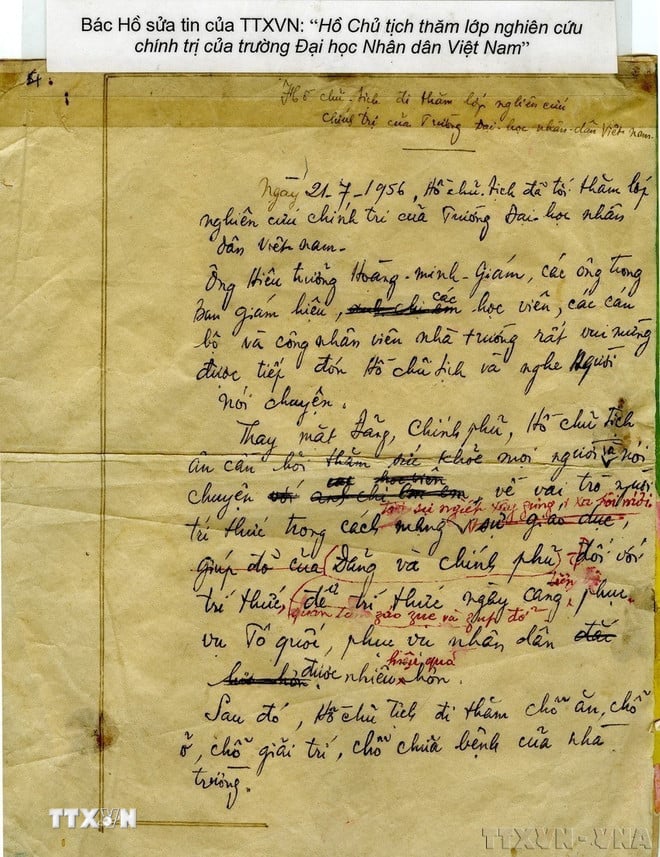
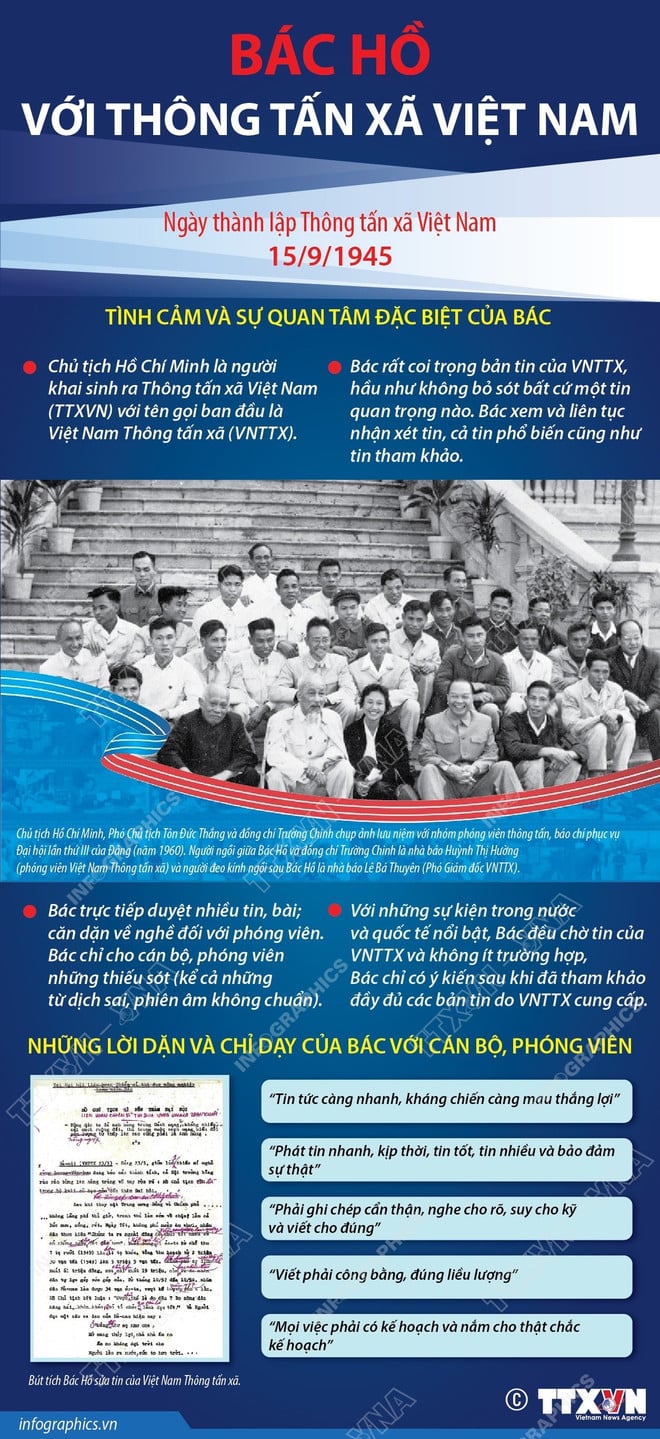
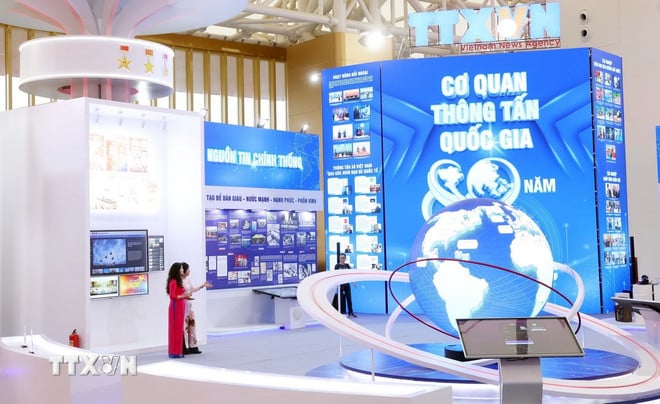

![[Photo] Prime Minister Pham Minh Chinh launched a peak emulation campaign to achieve achievements in celebration of the 14th National Party Congress](https://vphoto.vietnam.vn/thumb/1200x675/vietnam/resource/IMAGE/2025/10/5/8869ec5cdbc740f58fbf2ae73f065076)



![[Photo] Prime Minister Pham Minh Chinh chairs the Government's online conference with localities](https://vphoto.vietnam.vn/thumb/1200x675/vietnam/resource/IMAGE/2025/10/5/264793cfb4404c63a701d235ff43e1bd)
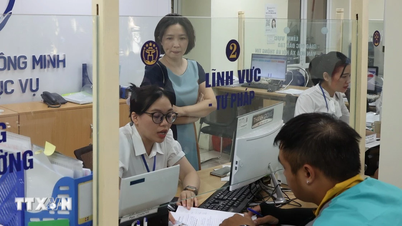



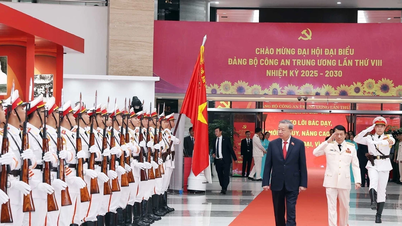
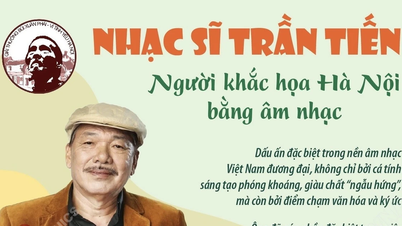
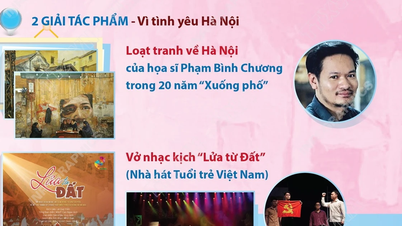
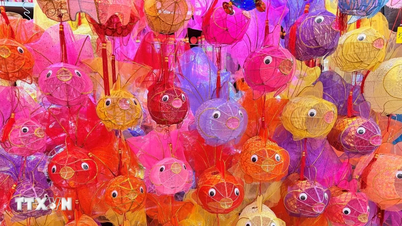
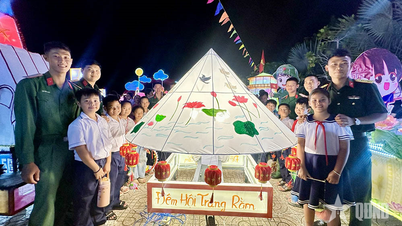

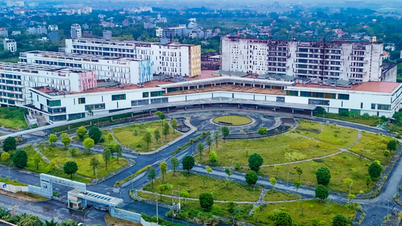

![[Video] Jelly Mooncakes: New Colors for the Mid-Autumn Festival](https://vphoto.vietnam.vn/thumb/402x226/vietnam/resource/IMAGE/2025/10/5/abb1d390ee7f452b9110fca494ba0d77)

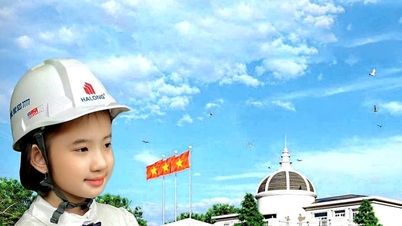

![[Video] Traditional moon cakes attract customers](https://vphoto.vietnam.vn/thumb/402x226/vietnam/resource/IMAGE/2025/10/5/0a98992e8c92419fa9ea507de23e365d)




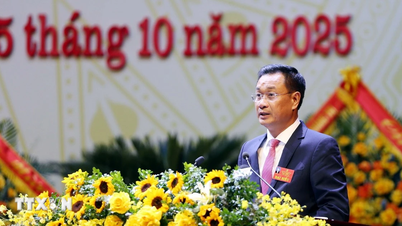
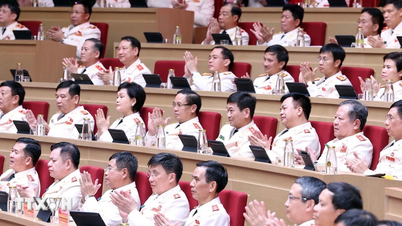
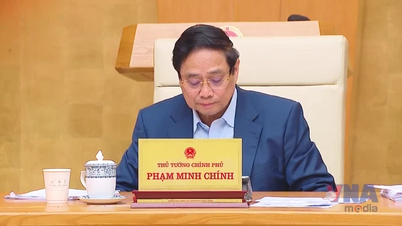
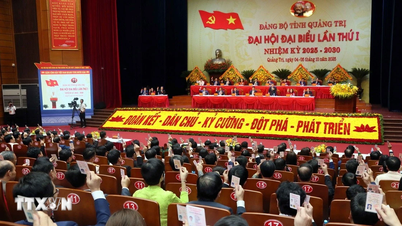
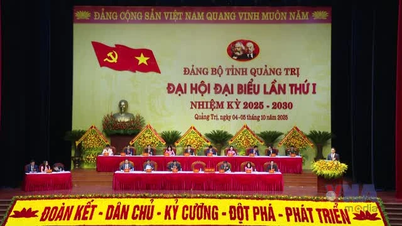
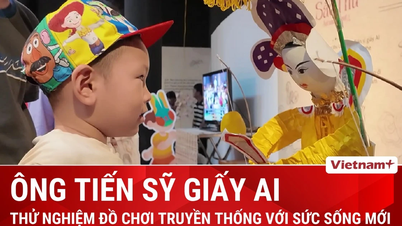

























![[VIDEO] Summary of Petrovietnam's 50th Anniversary Ceremony](https://vphoto.vietnam.vn/thumb/402x226/vietnam/resource/IMAGE/2025/10/4/abe133bdb8114793a16d4fe3e5bd0f12)

![[VIDEO] GENERAL SECRETARY TO LAM AWARDS PETROVIETNAM 8 GOLDEN WORDS: "PIONEER - EXCELLENT - SUSTAINABLE - GLOBAL"](https://vphoto.vietnam.vn/thumb/402x226/vietnam/resource/IMAGE/2025/7/23/c2fdb48863e846cfa9fb8e6ea9cf44e7)















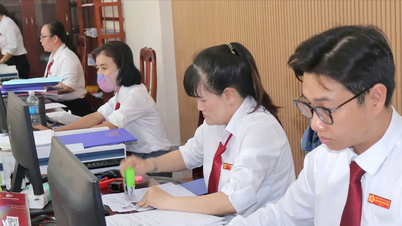
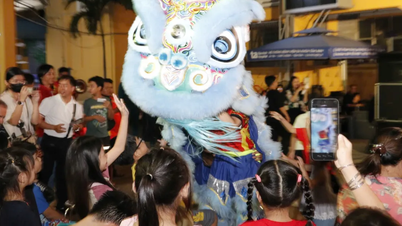

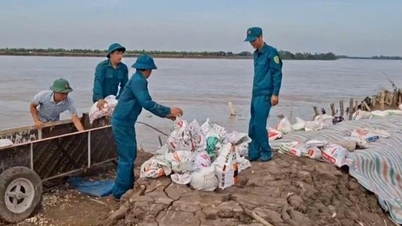














Comment (0)